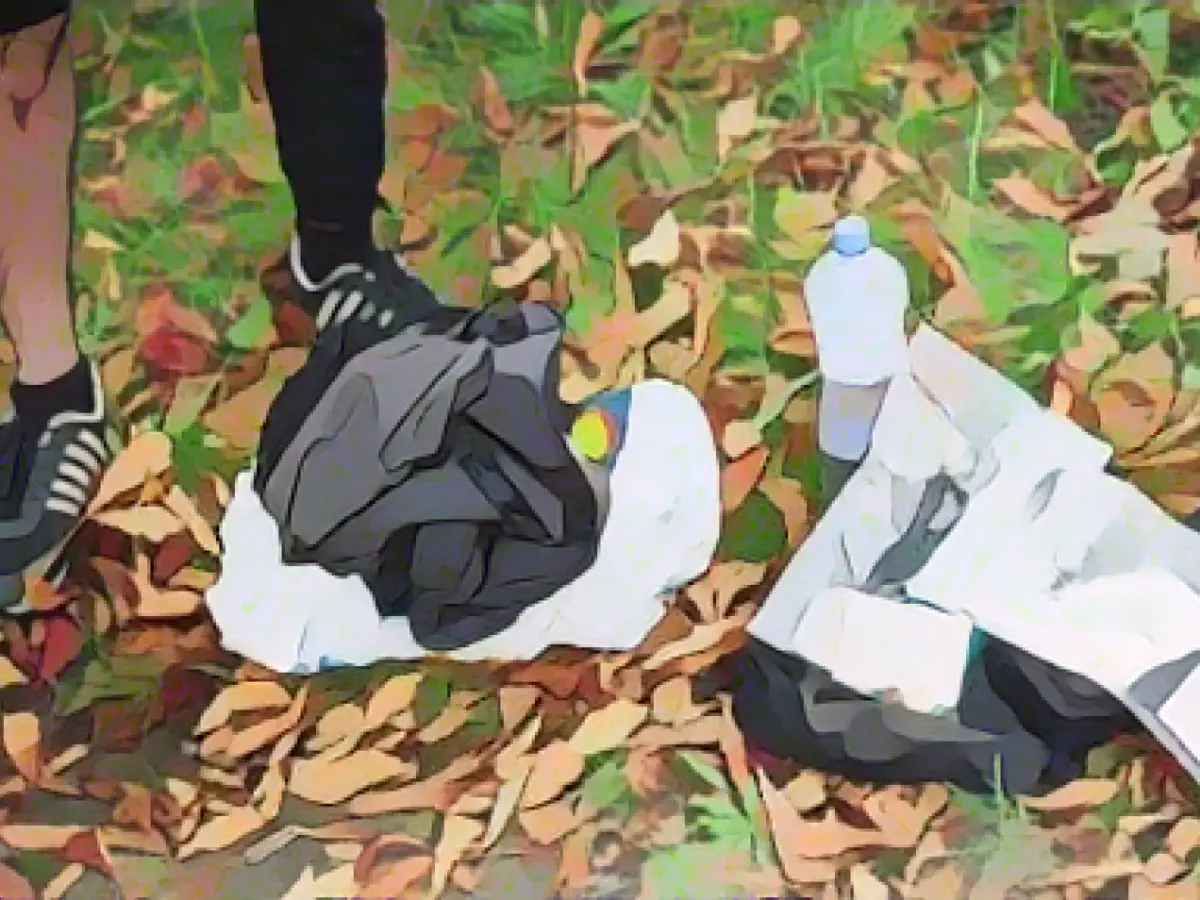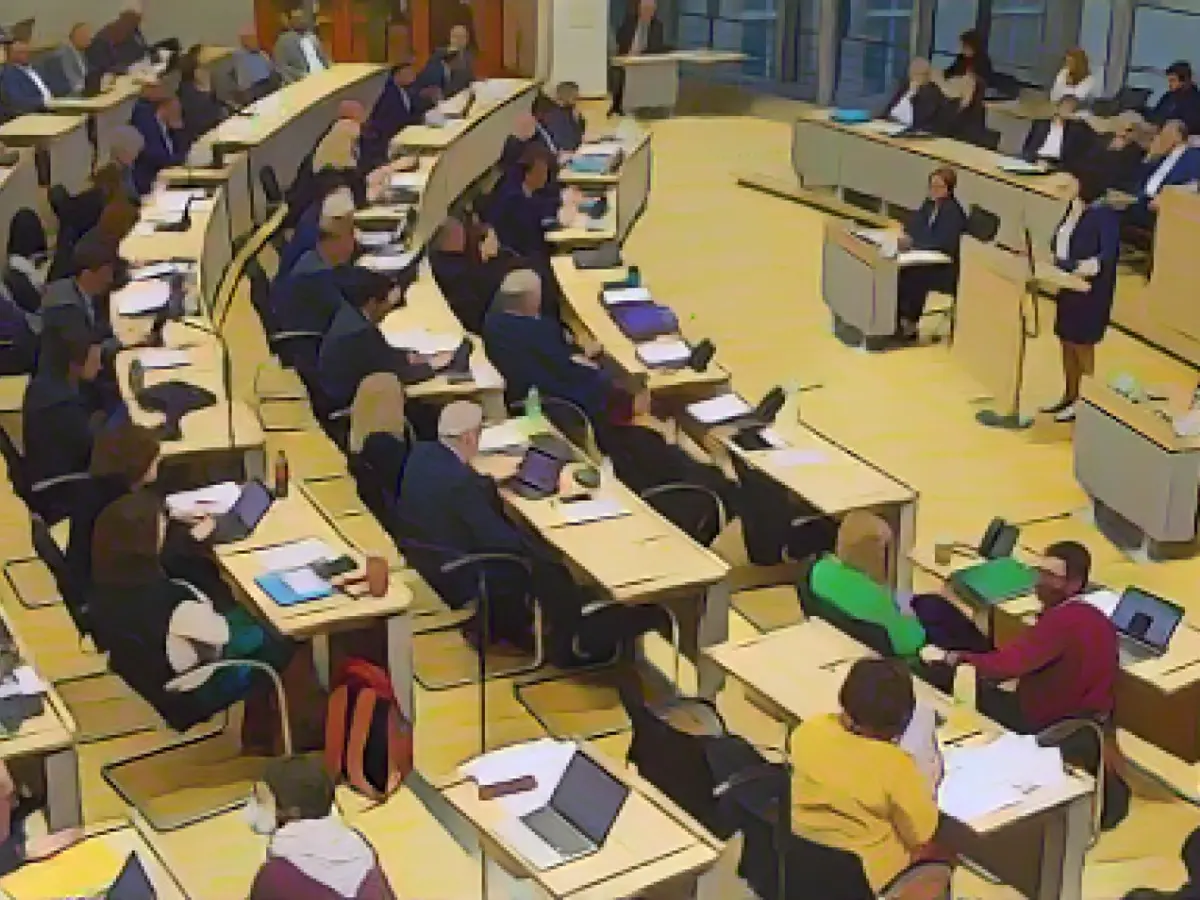Bouncing Back with Lang and Nouripour: The Greens' Federal Election Strategy
Despite a rocky period, the Greens remain steadfast with their leadership trio, Ricarda Lang and Omid Nouripour, as well as Emily Büning at the helm. Even in the face of weak poll results, state election losses, and internal dissent over asylum policy, they garnered impressive votes at a party conference in Karlsruhe.
The Greens are committed to challenging for the Chancellorship in the 2025 federal elections. With Lang receiving a strong vote of 82%, Nouripour moving forward with 79%, and Büning notching up 83%, this trio is tasked with steering the party through challenging times.
"These have been tough years, but they are the easy ones --- the hard ones are yet to come," said Nouripour, acknowledging moments of self-doubt. However, he pledged to continue speaking out against oppressive regimes like Iran's, echoing his courage during the Iranian "Women, Freedom, Life" protests.
NOURIPOUR AND LANG'S UNITED FRONT
Both leaders praised their collaborative efforts, acknowledging their differing opinions, but sharing a united front. Lang acknowledged slipping into technocratic language sometimes, particularly during debates on the heating bill. She vowed to better address people's concerns and fears, particularly for middle-income groups, emphasizing the need for a "new promise of justice."
CONTROVERSIES AND CHALLENGES
While the party saw some electoral successes, having its functions under Lang and Nouripour didn't always sit well with the public. Critics pointed out communication shortcomings, such as delaying responses to public concerns and deploying outdated rhetoric. This was evident in their approach to the heated debate surrounding the heating bill.
The Green leadership also struggled when faced with fierce opposition, particularly regarding their stance on asylum policies, sparking criticism from both within and outside the party. With opposition teams capitalizing on these weaknesses, the trio grappled to counter their attacks, leaving the impression that they were at a loss for words in times of adversity.
THE WAY FORWARD
Looking ahead, the Greens will need to work on these disadvantages. By communicating their mission more effectively, speaking directly to their supporters, and improving their responses to public concerns, they can better connect with their base.
Moving forward, the Greens must also strike a balance in discussions with their coalition partners. They must be unyielding in their pursuit of justice, but also considerate of potential consequences and at ease in compromising when needed. In the long term, this delicate balancing act will determine the party's progress and continued success.
THE GREEN PARTY IN THE COALITION GOVERNMENT
Participating in a coalition government requires self-reflection, adaptability, and the ability to sometimes abandon traditional ideologies. This is evident in the party's collaboration with the Christian Democrats (CDU) in North Rhine-Westphalia.
While this alliance has given the Greens crucial political experience, it has also faced accusations of becoming too restrictive towards refugees. By learning from these challenges, the party can leverage its experience to create a more effective and inclusive cooperation platform in government.
KEY POLICY ISSUES
- Climate Transition
- The Greens advocate for a 2045 net-zero target, emphasizing decarbonization, economic recovery, and social justice.
- Asylum Policy Criticism
- The party has faced criticism for mimicking xenophobic agitation and increasing repressive powers against refugees. It should emphasize human rights and compassion in its policies, rather than succumbing to political pressure.
- Coalition Dynamics
- Collaborating with the CDU has shown the Greens the importance of finding common ground scales, even when ideological differences arise. By focusing on shared values, like the environment and social justice, the party can successfully navigate coalition politics.
CONCLUSION
The Greens now face a crucial turning point, with the 2025 federal elections on the horizon. By addressing their communication shortcomings, prioritizing their objectives, and maintaining unity, the party can thrive in the ever-evolving political landscape. Embracing diverse perspectives within the party and valuing unity will be vital as the Greens progress towards broader societal acknowledgment and eventual power-sharing opportunities.








